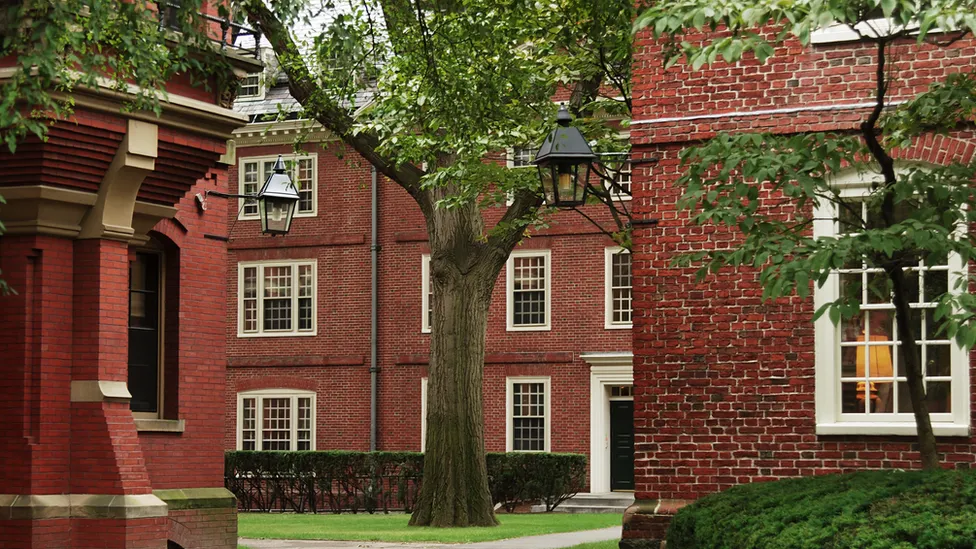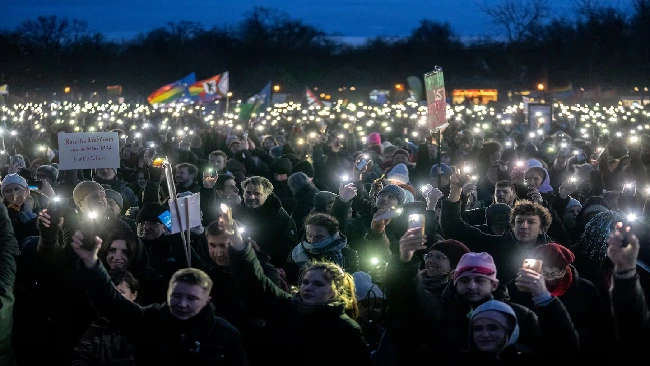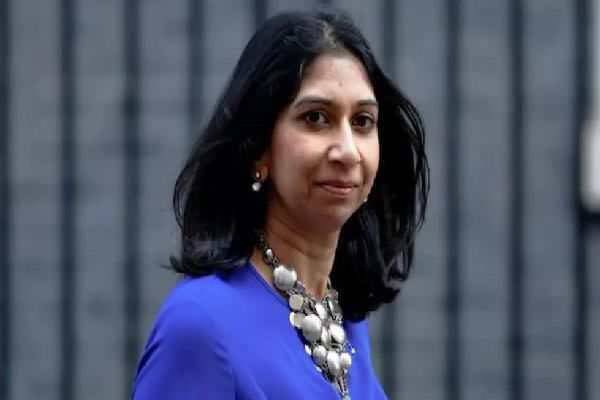Harvard under fire for helping elite skip the queue
By KnowledgeVeto Sunday, November 26, 2023 02:45

© Provided Images By GettyImages
Harvard University is in danger after a historic court case revealed how it offers relatives of graduates an advantage. Its so-called legacy admissions strategy is currently under fire from legislators who claim it promotes inequity.
For generations, the red-brick streets of Harvard's campus have carried the footsteps of America's future leaders, from Teddy Roosevelt to Mark Zuckerberg. Admission to the oldest university in the United States is highly sought after due to its potential to drive students into the elite echelons of politics, business, and technology. However, the process by which it selects who receives the golden ticket is being closely scrutinized.
A momentous Supreme Court ruling earlier this year demolished affirmative action, making it illegal for Harvard and other universities to offer admission priority to under-represented minorities.
Harvard stated that the change would make it more difficult to recruit a diverse student body. However, the legal processes revealed what many had long suspected: the institution gives precedence to the offspring of alumni.
Legacy admissions is a policy practiced by dozens of prestigious American universities, including the eight Ivy League schools, as well as many other private and elite public universities. It indicates that if a close relative attended that university, you may be preferred over another applicant of comparable strength whose parents did not.
While most class benefits in US culture are conferred with a wink and a nod – it's all about who you know, what you wear, and how you sound – the court case revealed how institutions employ legacy status to allow some applicants to bypass the queue. As a result, many people, from state politicians to Harvard students, have called for the regulation to be repealed.
Allison Hunter couldn't believe it when she heard that she had been accepted to Harvard University.
"I never would have thought it would have been something that in my lifetime, I would have been able to accomplish," she told me.
But a mentor persuaded her to apply, and she is now the first student from her Atlanta high school to attend the prestigious college.
"You have to think of yourself as capable," she said.
For years, the school has increased its efforts toward inclusiveness. Tuition was $54,269 per year in 2023, however it is free for students whose families earn less than $65,000, and households earning up to $150,000 pay no more than 10% of their income per year. Over the last four decades, the school has raised the proportion of non-white and Hispanic students from 17% to more than 50% of the student body.
Another Harvard student, Donyae Jenkins, stated that "a lot of black and brown students may feel that this is somewhere they don't deserve to be" following the Supreme Court ruling.
Allison and Donyae both oppose the repeal of affirmative action, especially as legacy admissions continue to benefit students who are well-off and white. According to documents filed in the Supreme Court
case, Harvard awards points to "ALDC" candidates, which include legacy applicants, athletes, relatives of donors, and children of faculty or staff.
While ALDC students account for only 5% of applications, they account for roughly one-third of acceptances. Approximately 70% of those who applied were white. "They [the children of alumni] are also getting what some may call special admission into the college," she remarked.
Data reveal that that distinct advantage is a rocket ship into the stratosphere of America's elite.
A recent article produced by Opportunity Insights, a research group located at Harvard University and Brown University, discovered that legacy candidates were four times more likely to be admitted than non-legacy students with the identical test scores.
The study examined 15 years of admissions data from 12 private "Ivy-Plus" universities (the eight Ivy League colleges plus the Universities of Chicago, Duke, MIT, and Stanford).
The study discovered that when these identical legacy students applied to other elite universities where they did not have legacy status, their advantage vanished.
When compared to students who attended "flagship" public institutions, students who attended "Ivy Plus" colleges were 60% more likely to earn in the top 1% and three times more likely to work for prestigious businesses in medical, research, law, finance, and other fields.
"Students on these campuses today will be the leaders across a wide range of fields in society tomorrow," said John Friedman, a professor at Brown University (also an Ivy) and co-author of the study.
"If we want children from all backgrounds to feel like they have a shot at a trajectory to get to those leadership positions, we need these universities to be admitting students in a way that supports broader equality of opportunity."
Others have confirmed their findings. According to a 2019 research by the National Bureau of Economic Research, 75% of white students recruited as ALDCs at Harvard "would have been rejected" if they were considered as white students without those connections.
Supreme Court justices clash over 'colourblind' America
Many academics trace the origins of legacy admissions back to the early twentieth century, when colleges attempted to keep their institutions out of reach of the country's rising immigrant population. While times have changed and Harvard has pledged to increase diversity and equity, legacy admissions persist. The institution defended the practice by claiming that it "helps to cement strong bonds between the university and its alumni" that endure a lifetime. It also noted the "generous support" that alumni provide which helps make financial aid possible to increase diversity and excellence, "Although alumni support Harvard for many reasons, the committee is concerned that eliminating any consideration of whether an applicant's parent attended Harvard or Radcliffe would diminish this vital sense of engagement and support." That sum is not insignificant. Harvard has the world's largest university endowment, valued at $50 billion. Oxford and Cambridge, which do not use legacy admissions, have endowments of approximately $7 billion each. Harvard's enormous funds have helped it crown the country's elite, but others accuse it of abusing this influence to uphold the status quo rather than to create a better society. And they argue that legacy admissions must be eliminated. The state legislature in Massachusetts is drafting a law that would levy a tax on the school and other colleges that provide legacy admissions perks. "One of the things that binds Americans together, whether you're from Maine, Massachusetts, California, or Texas, is this idea of meritocracy," says bill co-sponsor and Dominican Republic native state Senator Pavel Payano. "These elite universities are essentially focused on having individuals that don't look like me, individuals that are not working-class people attend their school, and I don't think that's right." Harvard is also the subject of a civil-rights investigation by the US Department of Education following a lawsuit alleging that the school gave undue priority to white, rich students by prioritizing legacy and donor candidates. According to Michael Kippins, a litigation fellow at the legal non-profit Lawyers for Civil Rights, which brought the action, the admissions policy is inappropriate. "They discriminate against applicants of colour, and there's a disproportionate impact on applicants of colour, that unjustly harms their chances of being admitted to Harvard," he told me. There are indications of a sea change. Wesleyan University and Amherst College, two prestigious private colleges, have both discontinued legacy admissions. According to Harvard University President Claudine Gay, "everything was on the table" in light of the Supreme Court's decision on affirmative action. "I can't, nor do I think it is actually productive to try to predict where that conversation is going to go," she told the Harvard Crimson, the student paper. "But I think it's a real signal of what a watershed moment we're facing in higher ed, that we're thinking and having conversations at this level of expansiveness." The school did not reply to numerous requests for comment from the BBC. During a recent visit to campus, some students believed the backlash against legacy admissions was exaggerated. "I just think that they (legacy students) deserve a spot on this campus just as much as the rest of us," Kennith Taukalo, who is not a legacy student, said. Others, however, wondered if there was a better approach. "Other places in the world are still able to create that academic environment of excellence without this legacy admission," said Louise Rossetti, a Ph.D. student from the United Kingdom. "I'm sure there's other ways in which funding could be brought to the university without creating shared disadvantage to students."













